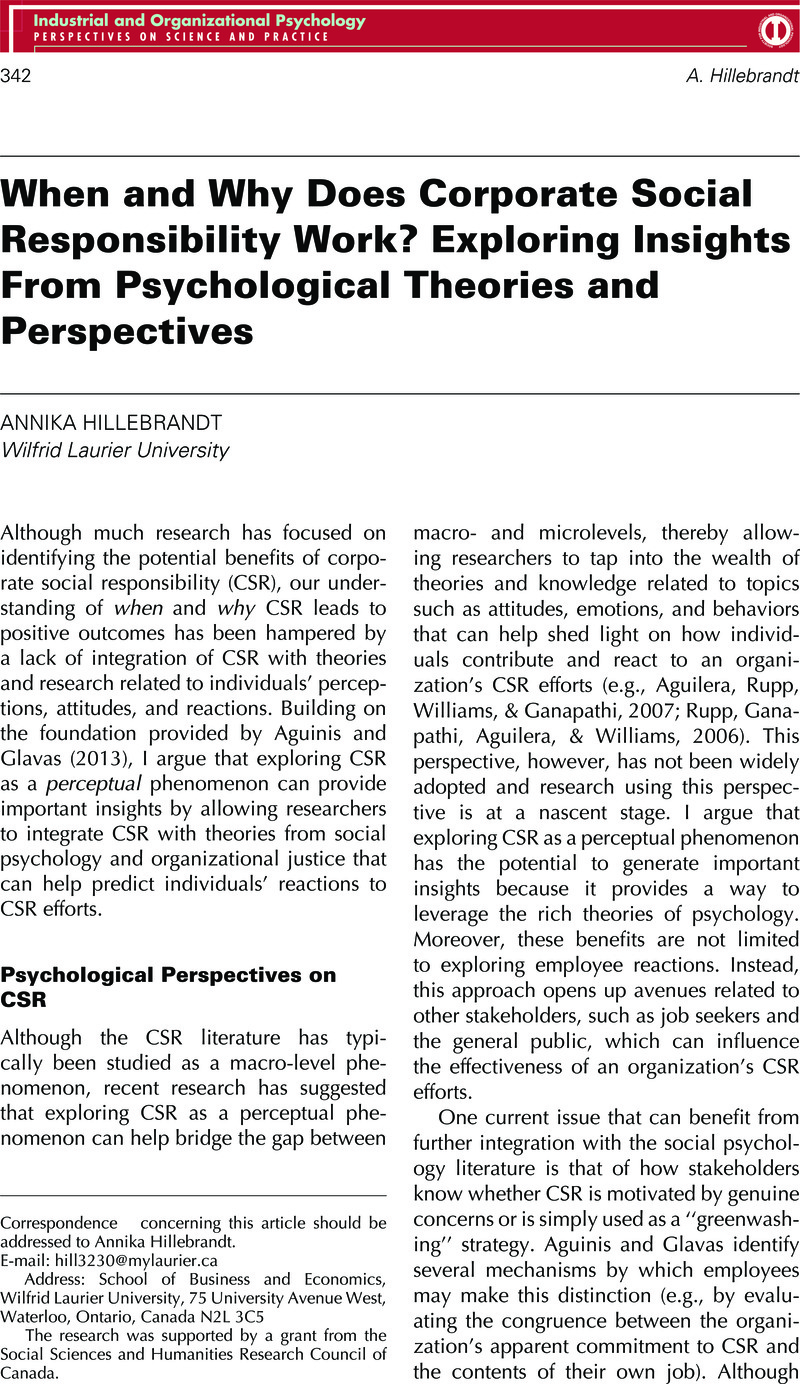Crossref Citations
This article has been cited by the following publications. This list is generated based on data provided by Crossref.
Gillian Vesty, Dr. Steven Dellaportas, Dr.
Wynder, Monte
and
Dunbar, Kirsty
2016.
Ethical values in the evaluation of corporate social performance.
Managerial Auditing Journal,
Vol. 31,
Issue. 2,
p.
180.
Gond, Jean‐Pascal
El Akremi, Assâad
Swaen, Valérie
and
Babu, Nishat
2017.
The psychological microfoundations of corporate social responsibility: A person‐centric systematic review.
Journal of Organizational Behavior,
Vol. 38,
Issue. 2,
p.
225.
Esper, Susana C.
Barin-Cruz, Luciano
and
Gond, Jean-Pascal
2024.
Engaging Stakeholders During Intergovernmental Conflict: How Political Attributions Shape Stakeholder Engagement.
Journal of Business Ethics,
Vol. 191,
Issue. 1,
p.
1.





